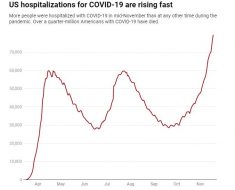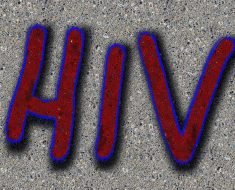WEDNESDAY, Nov. 25, 2020 — The majority of older Americans say they’re likely to get a COVID-19 vaccine, but many would want to wait a bit before getting the shot, a new survey reveals.
Older adults are among the groups with the highest priority for COVID-19 vaccination. This poll of more than 2,000 adults, ages 50-80, was conducted in October by the University of Michigan’s Institute for Healthcare Policy and Innovation. It found that 58% of respondents said they’re somewhat or very likely to get vaccinated once a vaccine is available.
That increased to 66% when the poll team asked the question a different way, with 20% of older adults saying they’d like to get vaccinated as soon as there’s a vaccine, but 46% saying they’d rather wait for others to get vaccinated first.
“Effective vaccines will be crucial to getting this pandemic under control and preventing serious illness and death from COVID-19, especially among people over 50 and those with underlying health issues,” said Dr. Preeti Malani, the poll’s director and a specialist in geriatrics and infectious diseases at Michigan Medicine.
“Our findings point to a strong need to communicate effectively and transparently about how well the vaccines work, the safeguards built in to protect the safety of recipients, and the public health importance of widespread vaccination starting with priority groups,” Malani said in a university news release.
Older adults less likely to say they’d get vaccinated included women, people of color, those ages 50-64, and those with lower incomes and education levels.
Only four in 10 Black people and 51% of Hispanics said they’re somewhat or very likely to get vaccinated, even though they have a greater risk of hospitalization and death if they develop COVID-19.
Respondents most likely to say they’d want to get vaccinated immediately included those older than 65, whites, men, and those with higher levels of education.
One-quarter of respondents said they’d consider taking part in a vaccine clinical trial.
Eight in 10 respondents said they’ll consider how well a vaccine works as part of their decision about getting vaccinated. Just over half said their doctor’s recommendation would be very important, and just over 40% said the same about recommendations from public health officials.
“Once vaccines are available, it will be important for Americans to talk to their providers to understand which vaccine is best for them and make an informed choice, and for public health officials to monitor uptake and the impact on community health,” said Alison Bryant, senior vice president of research for AARP.
More than half the respondents said their own research would influence their decision. According to Malani, that means it’s crucial for news media, government, vaccine makers, health organizations, hospitals and nonprofits to provide easy-to-understand and accurate information about vaccines.
That includes sharing information about any problems during clinical trials and all safeguards in place during vaccine development. Nearly half of the respondents said they worry about the safety of a rapidly developed vaccine.
Source: Read Full Article





